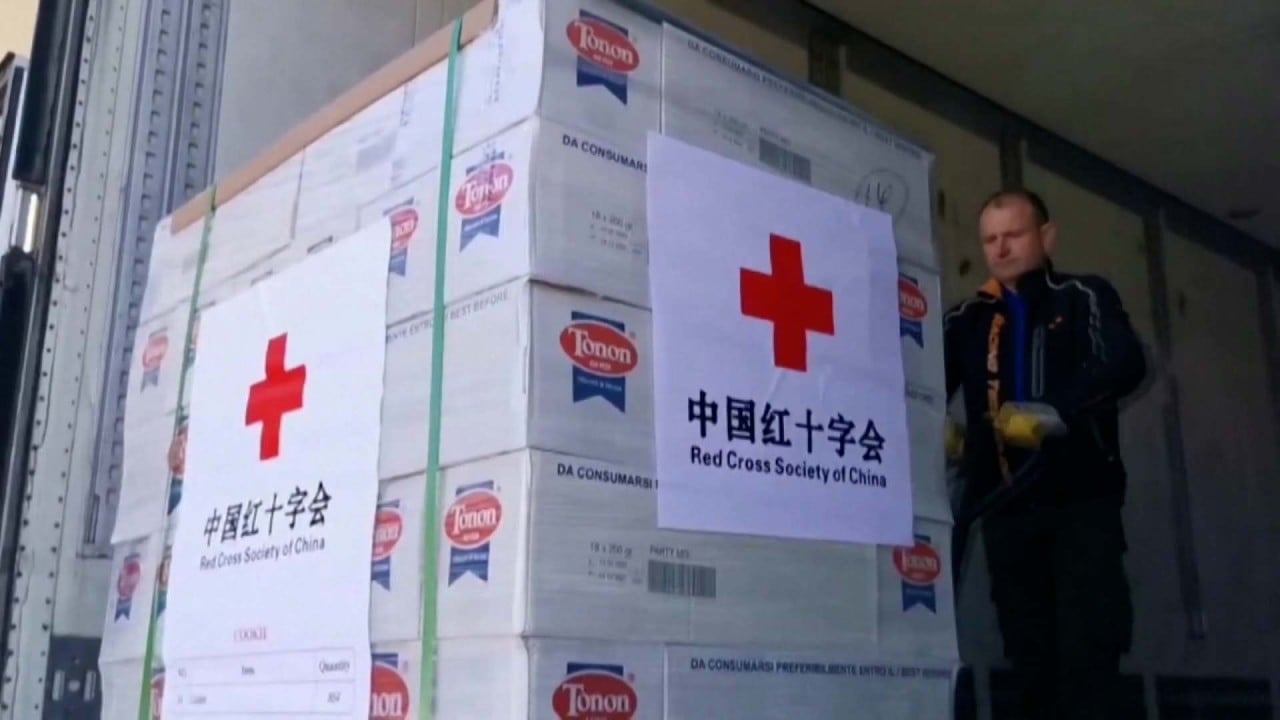
Ukraine: a year after sanctions, EU-China ties face new ‘defining moment’ on Russia
- Beijing hit European diplomats, politicians and researchers with travel and business bans in response to sanctions over Xinjiang
- Relations have worsened since then and a sterner test is to come amid suspicion over Beijing’s positioning in Moscow’s war in Ukraine
A year ago on Tuesday, Clint Flores thought a colleague was joking when he told him via text message that he had been sanctioned by China.
“My press officer texted me and my immediate response was: ‘LOL, you cannot be serious.’ But he was, and when I had time to think about it, I guess it was not a big surprise, because the Chinese wanted to send a message and they had already gone after Mike Pompeo and other American figures,” said Flores, who has since left the diplomatic service.
The entire committee, along with members of the European and national parliaments, and multiple researchers and think tanks, were slapped with travel and business bans by Beijing.
Keeping big brothers at bay: why Lithuania is taking on China
But EU-China ties will be put through an even sterner test this week, amid growing suspicion over Beijing’s positioning in Russia’s war in Ukraine.
The EU’s foreign and defence ministers met in Brussels on Monday, where they discussed new measures to respond to the ongoing invasion, a potential ban on Russian oil, and the bloc’s new security and defence blueprint, known as the Strategic Compass. They were also expected to discuss China’s perceived backing for Russia.
This will be followed by a European Council meeting and Nato summit on Thursday, where European leaders will be joined by US President Joe Biden and Japanese Prime Minister Fumio Kishida.
Having collaborated on sanctions a year earlier, Biden is set to whip up the Western alliance again to deal with the broad threat of authoritarians, China included.
Half a dozen European officials, ministers and diplomats told the South China Morning Post that while the US had briefed the EU on intelligence related to the allegations, they had yet to share concrete evidence.
“We don’t have any evidence of that,” said a senior EU official. “But if we do [get it], we will deal with that evidence and respond in the right way.
“We are in constant contact also with allies in the G7 format, but also within the [European Council] to assess, also based on evidence, if our posture should change and if so how,” they added.
In the case that such evidence appears, the knives are already being sharpened in some quarters.
“If you have military assistance to Russia from China, we can reasonably say talk of using China as an honest broker is finished – China effectively becomes an accomplice,” said one senior diplomat.
In Brussels on Friday, diplomats discussed the agenda for the EU-China Summit on April 1, the first since the sanctions. The main discussion item was Russia’s attack on Ukraine, with debate on how far the EU should push China on the issue, lest it thrust Beijing closer to Moscow.
Some see China as already clearly on Russia’s side and want to focus on the consequences Beijing should face.
Others, including Germany, say the EU needs to “find the right tone and not use threats”, in the manner of the US, according to a source familiar with the discussions.
But even Germany was adamant that China must be made aware that this is “a defining moment” in EU-China relations for decades to come.
For Bjorn Jerden, director of the Swedish National China Centre, Russia’s invasion of Ukraine added unforeseen complications to an EU-China relationship that was already in decline when he checked Twitter on March 22 last year, only to find his Chinese name among those sanctioned by China’s foreign ministry.
In fast-changing Europe, rage against Russia fuels suspicion of China
“I was quite surprised initially because it wasn’t really on the cards that China would use these kind of sanctions against Europe, it hadn’t done so before. And also the decision to sanction non-officials like researchers, that was also a first,” said Jerden, who thought he was targeted due to poor Swedish-China relations.
“I think it was more a result of a general worsening relationship and changing perceptions on both sides. I don’t see either side lifting these sanctions,” he added.
From his vantage point in Stockholm, Jerden observes a sea change in attitudes towards issues like national defence and the preservation of democracy since the invasion, one which is being replicated across many EU countries.
“And I think the scepticism and distrust in authoritarian great powers will definitely increase. Absolutely, that will also have a knock-on effect when it comes to China and its relationship with Europe.”


